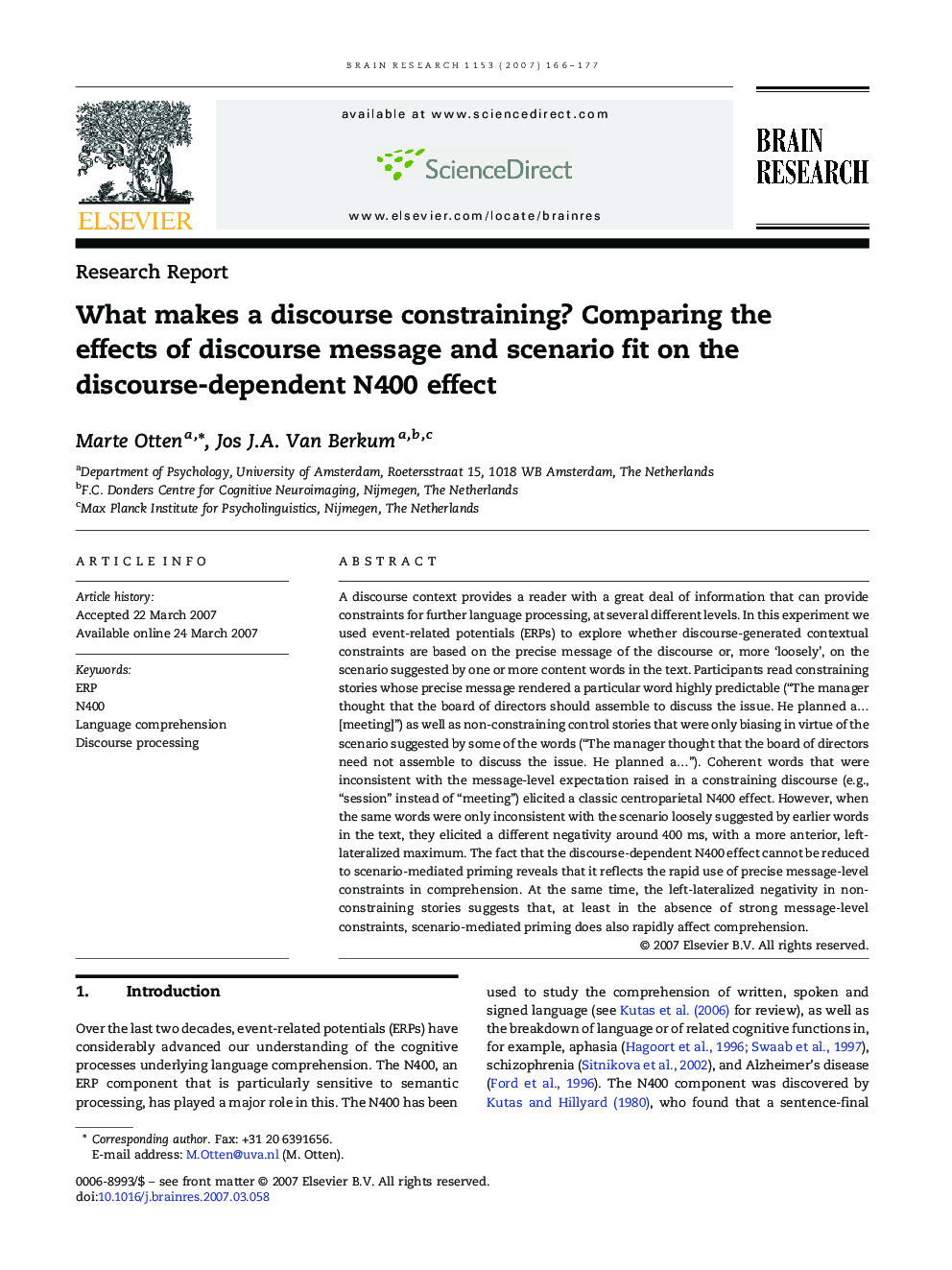| Article ID | Journal | Published Year | Pages | File Type |
|---|---|---|---|---|
| 4331090 | Brain Research | 2007 | 12 Pages |
A discourse context provides a reader with a great deal of information that can provide constraints for further language processing, at several different levels. In this experiment we used event-related potentials (ERPs) to explore whether discourse-generated contextual constraints are based on the precise message of the discourse or, more ‘loosely’, on the scenario suggested by one or more content words in the text. Participants read constraining stories whose precise message rendered a particular word highly predictable (“The manager thought that the board of directors should assemble to discuss the issue. He planned a…[meeting]”) as well as non-constraining control stories that were only biasing in virtue of the scenario suggested by some of the words (“The manager thought that the board of directors need not assemble to discuss the issue. He planned a…”). Coherent words that were inconsistent with the message-level expectation raised in a constraining discourse (e.g., “session” instead of “meeting”) elicited a classic centroparietal N400 effect. However, when the same words were only inconsistent with the scenario loosely suggested by earlier words in the text, they elicited a different negativity around 400 ms, with a more anterior, left-lateralized maximum. The fact that the discourse-dependent N400 effect cannot be reduced to scenario-mediated priming reveals that it reflects the rapid use of precise message-level constraints in comprehension. At the same time, the left-lateralized negativity in non-constraining stories suggests that, at least in the absence of strong message-level constraints, scenario-mediated priming does also rapidly affect comprehension.
